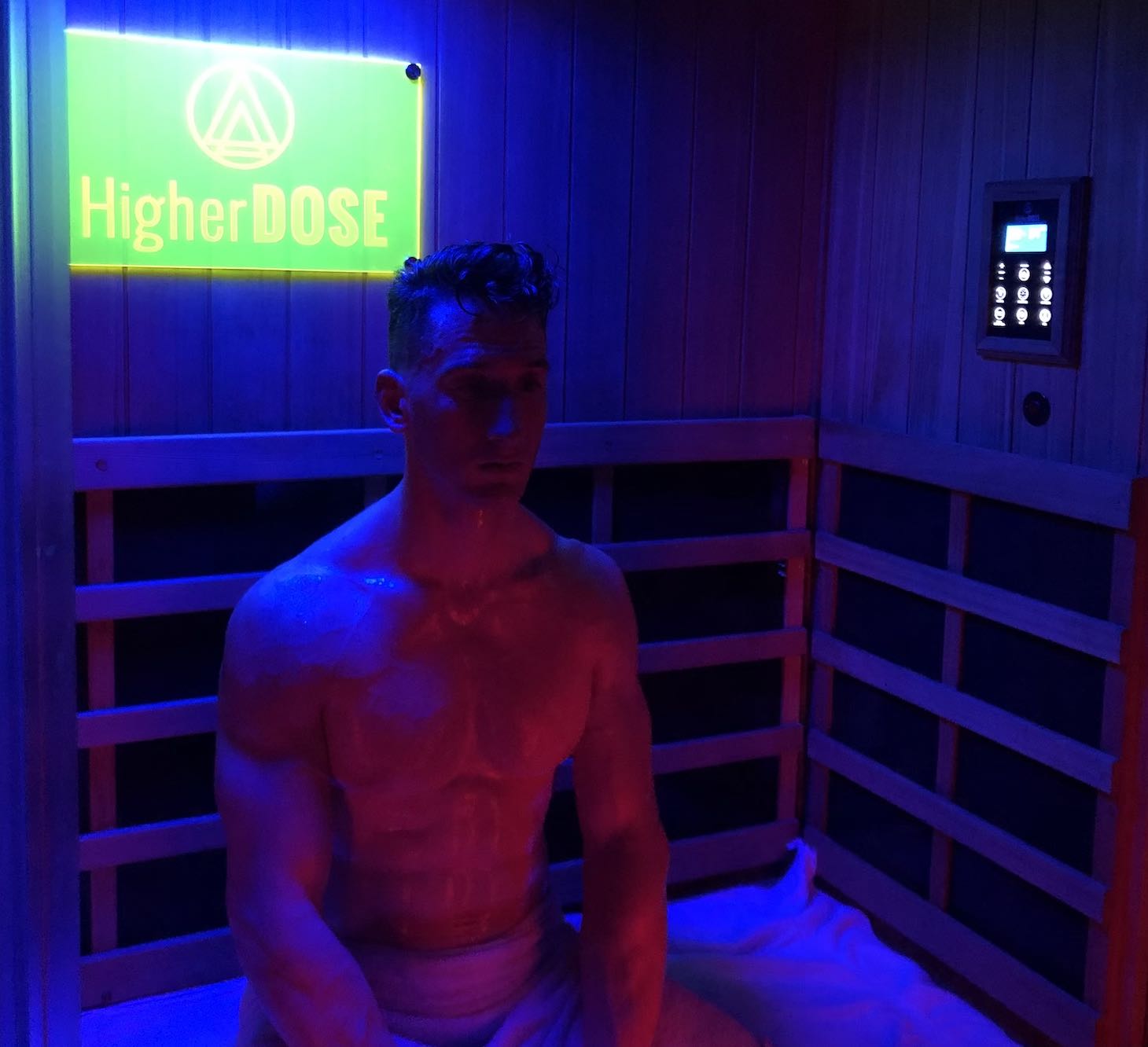When we get quality sleep at night we feel a whole lot better the next day. That’s a given. We’re full of energy, enthusiasm, and as alert and sharp as can be. Quality sleep keeps our hormones balanced which is an important factor when it comes to building muscle, fighting weight gain, and recovering from our workouts faster.
How well do you SLEEP ? ?
— humanfitproject (@humanfitproject) May 10, 2018
If you’re constantly tossing and turning, waking up in the middle of the night, or can’t ever seem to fall asleep, you’re not alone. In a recent HFP study with ~382 participants, 45% described their sleep as “Eh, OK, Average” and 28% described it as “Inconsistent”. It’s also worth noting, these are HFP followers (you!) who exercise regularly and consider health a top priority.
Give some of these lifestyle tweaks a try, they may just help you get more shut eye.
Related: The perfect day for brain and body performance
1. Drop the temperature in your room to create a quality sleep environment
Our bodies need a core temperature drop to sleep. Trying lower your heat a few degrees at night and see if it helps. Sleep studies and research show that temperatures between 60-67 are best for quality sleep, and temperatures above 75 or below 54 are disruptive.
2. Take a hot shower or bath to fight restlessness
We might prefer a cold room, but a nice hot shower before getting in bed can be helpful too. In a study of both young and elderly people who researchers had take a warm baths before bed found that body movements were less frequent during the first 3 hours of sleep, suggesting an enhancement in sleep quality.
3. Scale back the caffeine and pre-workout supplements
The half-life of caffeine, or how long it remains in your body, is around 5-6 hours. If you’re chugging coffees or pre-workout supps before sprints or squats, don’t be surprised if you can’t fall asleep. It might be worth switching over to a morning workout routine or at least nixing the caffeine after 12PM.
4. Stop having a “night cap” as a sleep aid
Around 20 percent of American’s use alcohol to help them nod off, but that little buzz could be throwing your circadian rhythm out of sync. In fact, even more moderate use of alcohol has been shown to suppress melatonin production, an important sleep regulating hormone. This doesn’t mean you can’t have a cocktail or beer before bed, just don’t use it as a sleep-aid.
Related: How to drink alcohol and still build muscle and lose weight
5. Turn off your phone
Text message and notification pings are unintentional alarm clocks. That’s obvious. What’s not obvious is the dose of blue light you’re consuming while you mindlessly swipe through your feeds in bed. To the brain and your body, blue light is interpreted as sunlight, and it suppresses melatonin production. Stop confusing your brain into thinking it’s time to go outside and play. It’s 2AM. Turn your phone off.
Related: I can’t take a selfie, but my workouts are 20x better now
6. Turn on the white or pink noise
Noises at night can be disruptive, but not all noise is same. Similarly to light, noise comes in different colors based on the distribution of the frequencies. White noise is all of the frequencies a human can hear and are equally distributed. Examples of white noise are the static from a TV or steam blowing from a kettle. Pink noise is common in nature, such as waves on the beach or wind in the tree. A recent study found that white noise effectively masks other environment noises, as a result, improving and maintaining sleep.
7. Get in a good stretch
Maybe it’s the stress and tension keeping you up at night. Stretching has been shown to lower our blood pressure and breathing rate. Come on, that’s why you’re feeling so good after yoga class. Take 5-10 minutes for a quick relaxation flow. It doesn’t need to be anything elaborate or extensive, just a few dedicated minutes to focus on moving the muscles and being conscious of your breathing.
Related: The wind-down routine to do before bed
8. Start meditating or breathwork
In order to shut down the body for the night, you need to shut down the mind. Mindfulness meditation has been shown to initiate a relaxation response which provides a reprieve from life’s many stresses. A study found that adults who practiced between 10 and 30 minutes of mindfulness exercise experienced less insomnia, fatigue, and depression after 6 sessions. Read also: How to start a breathwork practice
9. Quit smoking or other tobacco products
We don’t need to tell you the horrible side effects of smoking and tobacco use. You’ve seen the images. But there’s more you might not have known about it. A recent study found that smokers experience daytime sleepiness more frequently, get less total sleep, take a longer time falling asleep, and have altered sleep patterns from nonsmokers. Yet again, another reason to quit.
10. Keep training hard, day or night
Regular exercise, as you know, has several benefits, and research continues to show its positive effect on fighting depression and anxiety. And less depression and anxiety yields more quality sleep. But are you worried those late-night sessions could be keeping you up? This study of fit athletes suggests that sleep quality is unaffected. (Unless, to our point above, you’re hopped up on caffeine.)
—
Got a question or feedback? Hit up Mike on Instagram, Facebook, and Twitter.
Interested in coaching? Apply today!
Give us a follow us on social media: Instagram, Facebook, and Twitter.
Be first to know about our latest content drops! Sign up for our monthly newsletter.





